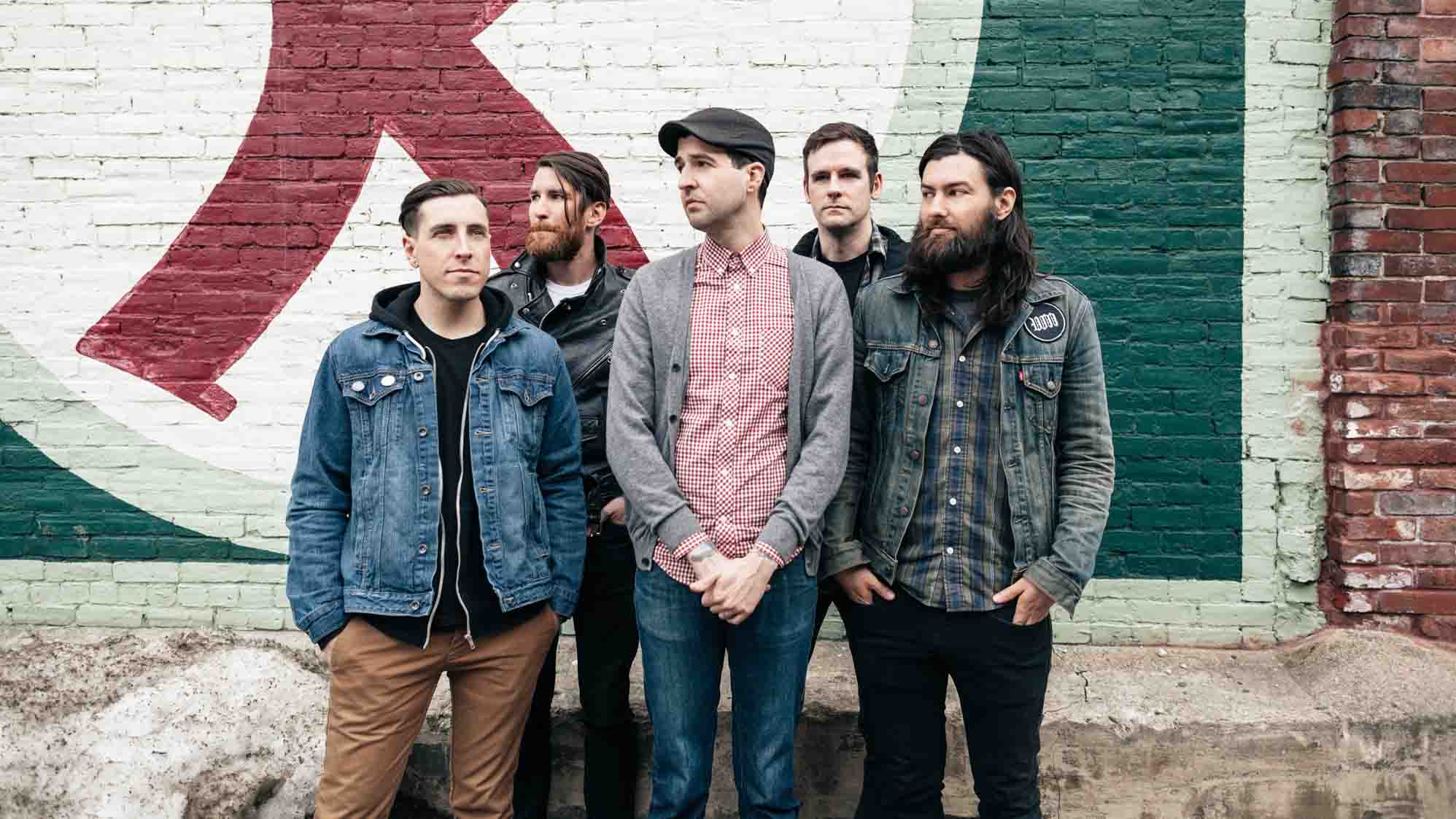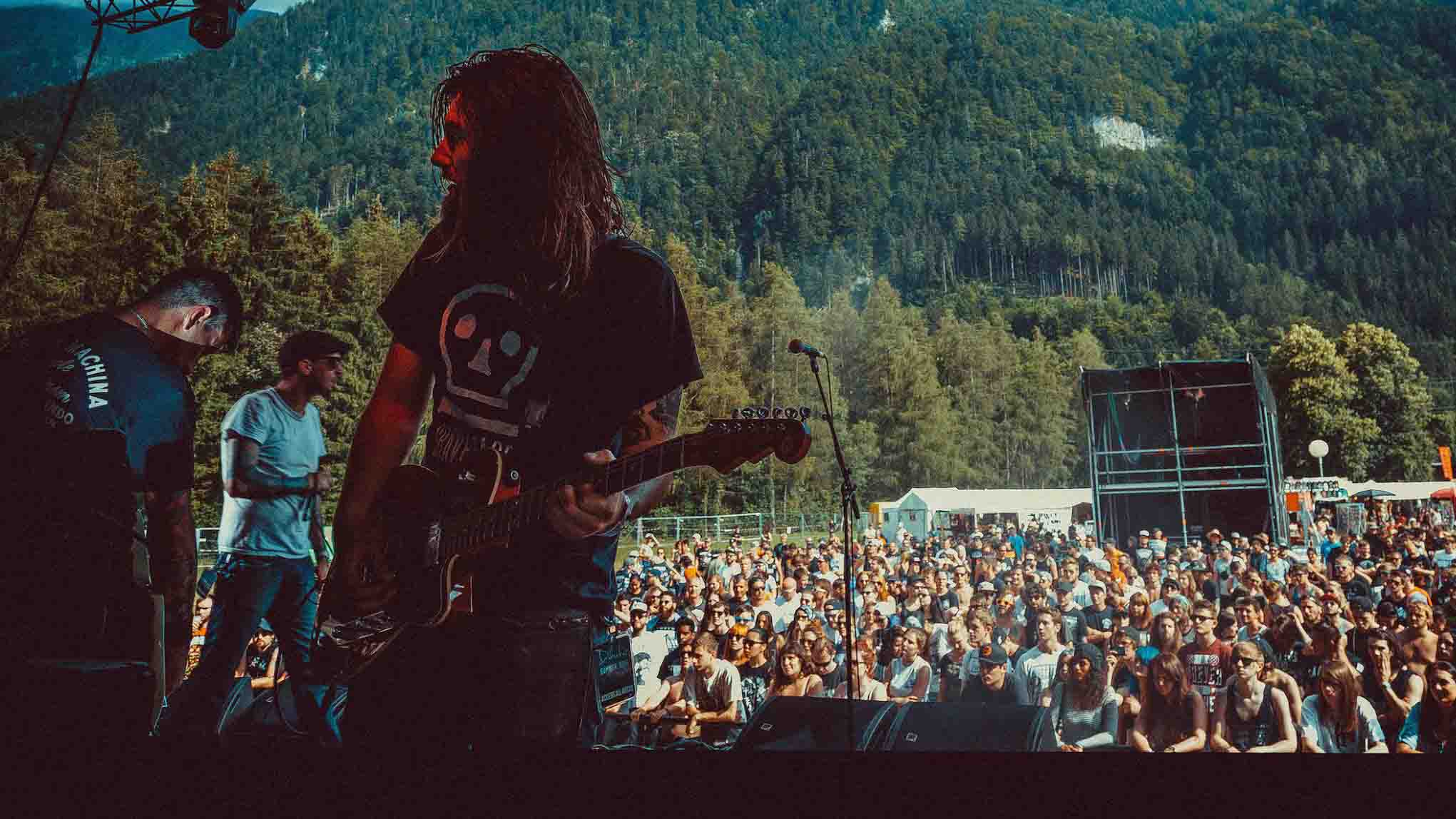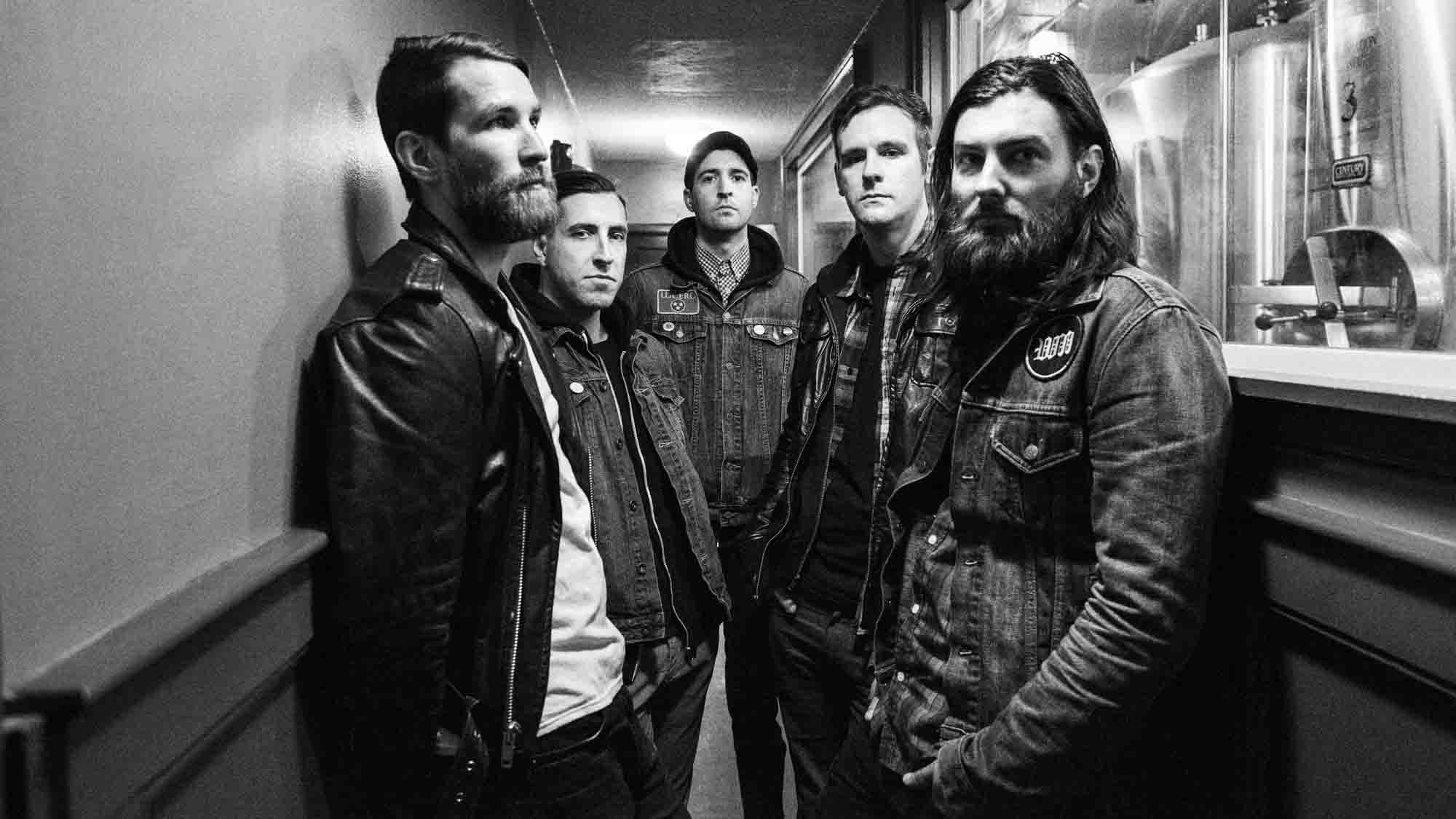Defeater's Jake Woodruff talks new album Abandoned
Hardcore guitarist on Teles, Reverends and concept albums

Concepts and Epitaph
Seven years on from debut album Travels, and Massachusetts hardcore quintet Defeater have come far indeed. Soundtracking the kind of conceptual narrative you’d expect from the likes of Dream Theater with stomping rhythms, jangly guitars and harrowing vocal roars, their take on punk is one that benefits greatly from its extra-curricular cinematic projection.
Album number four, Abandoned, invites more crunchy guitar from Jake Woodruff and Jay Maas in the melee of frenetic catharsis that also marks their debut release on Epitaph Records.
“We were all really pumped to write a record coming out on Epitaph,” notes Woodruff. “We’ve all been fans of that label since we were about 12 or 13, and now we’re on the same roster as Rancid, Converge and even Tom Waits through the sister label. That’s definitely a smattering of bands I never expected to be in the same category as!”
“I feel like we’ve solidified musically over the last few years – our last album, Letters Home, felt really comfortable; we all knew our roles. So, with that behind us, we wanted to dig in even harder this time round, especially with Epitaph pushing it for us. It definitely feels like we’re getting more confident in being Defeater.”
Written and pieced together as frontman Derek Archambault was healing from hip replacement surgery, Abandoned continues the story arc of a New Jersey family caught in the aftermath of World War II, this time told through the eyes of a priest character introduced on the track Cowardice from their 2008 debut.
It’s a remarkable tale that sees each musical instalment offer new levels of emotional insight, allowing perspective to tell the greater truth of its time. But rest assured – conceptual meanderings aside, Abandoned is a far cry from being a bloated, pompous prog-rock opera.
“Derek has done a great job of drawing from the same lexicon on each release,” continues Woodruff. “I think part of why the band has progressed in the way it has is because of the abstract storyline that facilitates a removal of the usual emotions hardcore is a vessel for. We’re not angry all the time, therefore we wouldn’t want to express ourselves through any one thing.
“The general story behind this record is that the priest begins to struggle with theological and abstract doubt. In every situation in his life, he feels well and truly abandoned. So that felt like the obvious choice when we were thinking about what to call this record.”
It makes you wonder – would Defeater ever consider writing a straight-up record? One with no concept or narrative whatsoever?
“It’s something we’ve been thinking about over the past few years,” admits the guitarist. “But we have other bands to do that kinda thing – me and Joe play together in Dreamtigers, and the other guys have their projects, too. If we ever ditched the concept stuff, it wouldn’t be Defeater, it would be something else.
"Plus, after seeing how Derek has crafted these concepts and storylines, we are all curious about how far we can take it. I don’t think we’ll ever run out of things to write about! Without that stuff, I’m not so sure it would be a true Defeater record.”

Teles and Reverends
Another vital ingredient in Defeater’s thunderous wall of noise is, of course, those snarling Fender Telecasters biting through the mix, adding some single-coil crunch to typically humbucker-dominated sonic landscapes. While there’s always that temptation to go “one louder”, Defeater guitarists Woodruff and Maas prefer lower-output sounds for greater clarity and control.
“We’ve recorded almost everything on an American Standard Telecaster. We find the single-coils allow our ideas to shine through a bit better. It also gives you more options later when it comes to equalizing and mixing. And as far as live performances, Jay plays a Telecaster and I play a Reverend Charger HB, which has humbucker pickups. We were both playing Telecasters live for a while, but found that having two of them was a little too harsh.
“From all the bands I’ve been in, I’ve realised how different getting a good sound is when recording compared to the live environment. We need the band to sound like Defeater live, which is why I switched to the Reverend. But it’s surprising how much articulation it has, considering the humbucker pickups, as well as that thicker, warmer sound you would expect. We just wanted a bit more diversity within our musical palette.”
As for amplification, Woodruff has chosen to stick to an impulse purchase made on tour a few years ago. Well, if it ain’t broke…
“I’m playing through a 1977 Marshall JMP, which I bought on the road back in 2011. I wasn’t even looking for one when I bought it. I just tried it out in a guitar store for a laugh while we were picking up strings. After strumming a chord, I brought the volume up and right there and then, it was like ‘Shit, I have to buy this today!’ It’s one of those amps you don’t really have to dial in; it just sounds good from the moment you turn it on.”
Fellow guitarist Jay Maas, however, has gone through something of a transitional period in order to find the amp with the right voice for him. Eventually he decided on a 100-watt Soldano head after using Peavey’s original 5150, which once served as Eddie Van Halen’s signature model.
“Jay was using his 5150 for a while, which gets a bit of a bad rep as a straight up metalcore head, but actually it’s very good-sounding and super-reliable. Those things are rock-solid. He ended up trying a bunch of different amps, in search of something sexier, I guess, and finally ended up with the Soldano. It has that sharp attack that a 5150 would but with a little more warmth.”

Hardcore heroes
Together, both rigs allow the guitarists to duck and weave their way through haunting atmospherics and meaty riffage that mainline right into the jugular. It’s often said how bands seem to yield greater power on stage, but rarely is it meant with such sincerity as in the case of Defeater.
Their raw visceral energy is one that’s made them one of hardcore’s modern heroes, continuing down the path laid by the punk legends of old while embracing the mushrooming tentacles of their own evolution.
When you see experience it live in the flesh, coughing and spluttering from the stage in a swirling orgy of beauty and pain, theirs is an approach we can all certainly learn from. Naturally, grim realities come from an uncomfortable place, warts and all…
“We’ve all been doing this since we were 14 years old,” reasons Woodruff. “This is going to sound really weird: but the less you try and the more you just do it, the better you can perform. Personally, my first few years of playing shows were mainly about figuring out how to think about it less.”
Maybe we grew up really spoiled, the local bands when we were 16 included Converge, Cave In, American Nightmare and more… Boston and New England in general spawned so many great bands that we were super lucky to see in our formative years. Those were bands that inspired us, and of course, they had a huge impact on what we’ve become.
"Just play the music, go off and have a good time. Don’t worry about playing super-precise; the more you focus on that, the more mechanical you’ll become. You have to move around and have fun.”
It’s sound advice and perhaps even something today’s crowds can learn from. As science and technology continue to spur the pace of the world we live in, distractions are rife from the stage to the pit, but Woodruff is quick to point out that the spirit of punk is far from dead.
“Hardcore is definitely not in need of saving – we just wrapped a pretty big tour so in general I’d say hardcore’s in a good place right now – but I do think we could all use their smartphones a little less. Be a little bit more immediate, watch a show and go crazy. Don’t worry about your Instagram post or selfie or any of that shit. It just takes away the moment of being at a show with your friends and having a blast getting those emotions out.”
Abandoned is out August 28 via Epitaph Records. Defeater play the Impericon Never Say Die Tour this November.
Amit has been writing for titles like Total Guitar, MusicRadar and Guitar World for over a decade and counts Richie Kotzen, Guthrie Govan and Jeff Beck among his primary influences. He's interviewed everyone from Ozzy Osbourne and Lemmy to Slash and Jimmy Page, and once even traded solos with a member of Slayer on a track released internationally. As a session guitarist, he's played alongside members of Judas Priest and Uriah Heep in London ensemble Metalworks, as well as handling lead guitars for legends like Glen Matlock (Sex Pistols, The Faces) and Stu Hamm (Steve Vai, Joe Satriani, G3).
